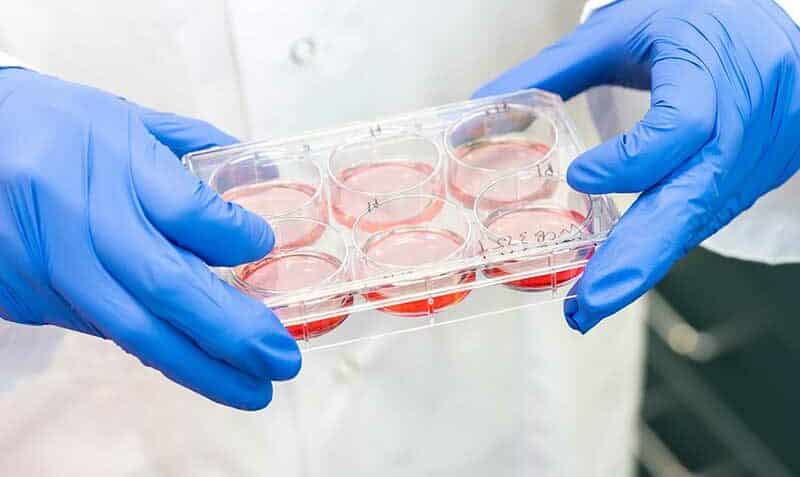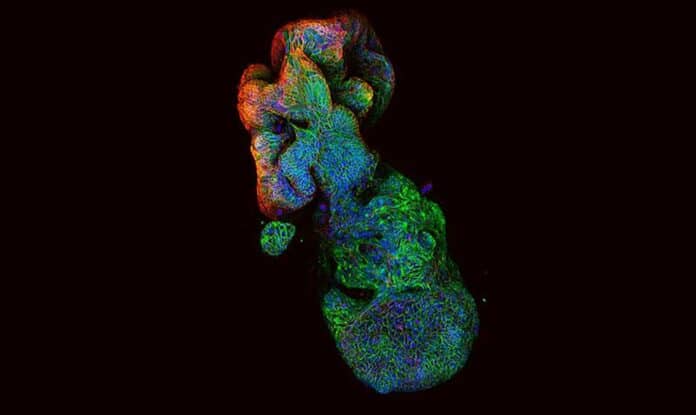Testing drugs on patient-derived tumor organoids (PDTOs) shows potential for tailoring treatment in metastatic colorectal cancer (mCRC). However, there needs to be more prospective data, especially concerning chemotherapy regimens, and the existing results are conflicting.
Researchers have conducted a groundbreaking study where tumors were grown in the lab to predict the effectiveness of drugs for individuals with bowel cancer before treatment starts. Led by WEHI, the world-first study utilized drug testing on tumor organoids, 3D cancer models derived from a patient’s tissue, to determine their response to a specific cancer treatment.
The promising results have paved the way for the development of a clinical trial, validating organoid drug testing as a reliable method to guide treatment selection for individuals with bowel cancer, which is the second-deadliest cancer in Australia.
In the study, researchers at WEHI demonstrated that the technology, utilizing tumor organoids grown from patients’ tissue, can effectively identify the most suitable treatment for individual bowel cancer patients. The study focused on assessing how these organoids responded to specific drugs, showcasing the potential of this approach for personalized treatment strategies in bowel cancer.

Co-lead researcher and medical oncologist Professor Peter Gibbs said, “The finding could end the current trial-and-error process that goes into selecting a cancer treatment for patients and improve their quality of life.”
“Each time you give a patient an ineffective treatment, you lose 2-3 months on something that won’t work.”
“The window for successful treatment is often limited, so it is vital that we choose the options with the highest chance of success and avoid other unlikely treatments.”
“Our findings show that organoid drug testing is a potential game-changer for cancer treatment, suggesting the possibility of revolutionising personalised medicine and clinician-patient care through improved treatment selection.”
“As hundreds of organoids can be grown from one patient tissue sample, it is possible to test a wide range of different therapy options in the laboratory.”
“Many patients with advanced bowel cancer only get one or two chances at treatment. Knowing what is most likely to work before they start treatment would make a significant difference to their survival outcomes and quality of life.”
As part of the study, the organoids of 30 patients with advanced stages of bowel cancer were used to pre-test chemotherapy drugs in a clinical feasibility trial.
Associate Professor Oliver Sieber, the corresponding author and WEHI Laboratory Head, said, “Seeing the promising results of the study was a groundbreaking moment for the team that validated over five years of research.”
“If a drug did not affect the tumor organoid, then this treatment would also have no effect on the patient – and vice versa.”
“Our study showed organoid drug testing was able to predict treatment responses for study patients with a notable 83% accuracy.”
“Importantly, pre-testing showed the therapies that won’t work with over 90% accuracy.”
In addition to assessing common chemotherapy drugs, researchers employed organoids to test the effectiveness of chemotherapy drugs that are not typically prescribed for bowel cancer patients. The study revealed that two patient organoids exhibited sensitivity to a drug commonly used for treating breast and bladder cancers.
The significance of this finding lies not only in the ability of organoid drug testing to predict patient responses to standard bowel cancer treatment but also in identifying a new therapeutic option for individuals participating in the trial. This underscores the potent potential of the technology in discovering novel and effective treatment approaches.
Journal Reference:
- Tao Tan, Dmitri Mouradov et al. Unified framework for patient-derived, tumor-organoid-based predictive testing of standard-of-care therapies in metastatic colorectal cancer. Cell Reports Medicine. DOI: 10.1016/j.xcrm.2023.101335
